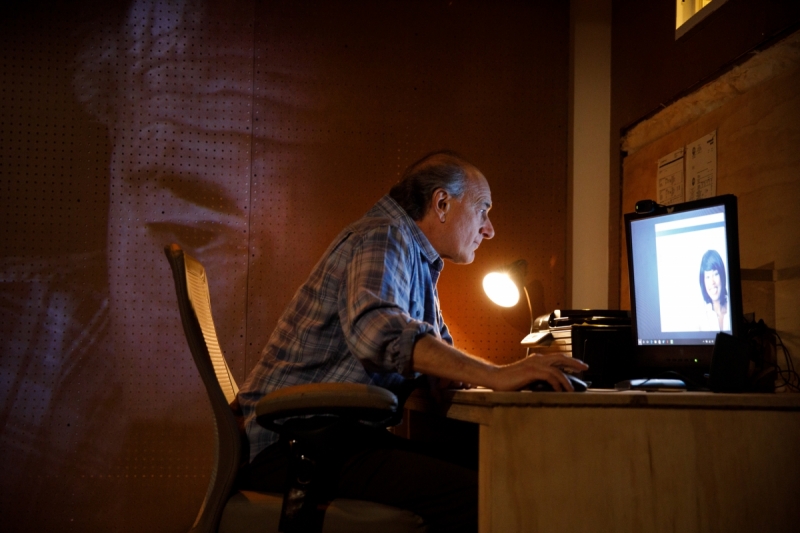
Some plays have an inner logic that defies linear story-telling. That doesn't mean they need be inaccessible or opaque. It merely means that the playwright's imagination sometimes takes over - for better or for worse.
I tend to be critical of those plays. Most of the time, the lack of an inner logic spells randomness in the story. Why is that scene there? What purpose does it serve to the over-arching dramaturgy of the play?
So, when a play like The Treasurer by Max Posner comes along - at times stubbornly prosaic, at other times elegiacally poetic -- it can be hard to win me over.
The Treasurer won me over. And moved me in ways that a lesser play would not. It is wonderful.
The plot couldn't be simpler: A Son (Peter Friedman) lives in Colorado while his recently widowed Mother (Deanna Dunagen) lives in Albany. On the surface, this is a by-the-numbers issue play -- the issue being the complications of end-of-life care for mom.
But there's a great deal more here, including funny and poignant ruminations while the Son rides his bike in and around town. To further explain the sharp turns the play makes -- similar to the sharp turns the Son makes on his bike -- would be reductive. Suffice to say that the play goes into seemingly random places that -- like life -- may or may not be quite random at all.
Peter Friedman is a virtuoso actor. And, like many virtuosos, he makes it look easy. He is funny, winning, angry, sad, and -- most of all -- perplexed. He's great company. Immensely likable. Terribly human.
Deanna Dunagen plays a less complicated character. But plays her with a combination of charm and ferocity.
David Cromer is the director. He is also directing Broadway's most anticipated new musical The Band's Visit. Where does he find the time? In The Treasurer, he has created a deceptively simple but powerful production. There are no flourishes, just haunting revelations. One of the most stunning directorial moments is a combination of the prosaic and the poetic. The Son is trying to log into his mother's accounts and must go through that inane and all-too-familiar series of questions in order to do so. It is here that the playwright launches into the fanciful as the questions the Son must answer become more and more invasive and more and more absurd. The Son answers them patiently and dutifully, but, behind him, his face, as seen by the computer's camera, is projected against the wall. The image is grainy and harsh. And it reveals the anguish and the torment the Son is suffering beneath his placid, patient surface. It is an image that will stay with me a long time.
Cromer is brilliantly assisted by his design team. And, due to the aforementioned attention he is must also be paying to The Band's Visit, I assume he was also ably served by his assistant director, Daniel Sharron.
I cannot predict what the critics will think of The Treasurer. My guess is that they will find it befuddling, and might not see that as a virtue. I'm not saying that everyone will find the play as seductive and affecting as I did. But -- on the chance that you might -- I urge you to see it. Not least for the brilliant work of Mr. Friedman.
